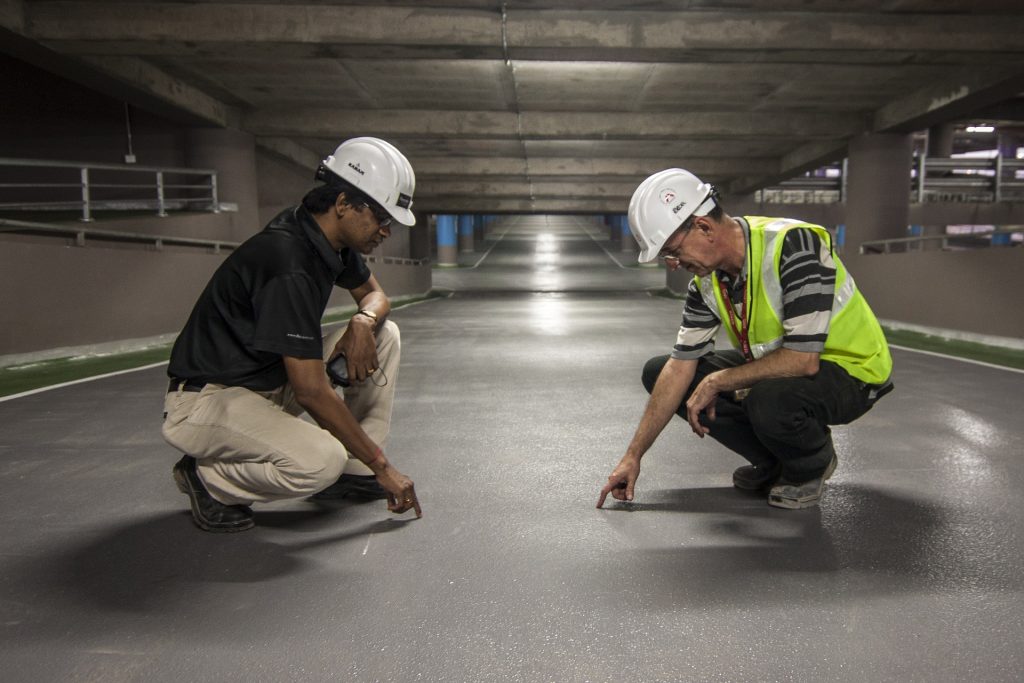According to the Construction, Plumbing and Services IRC’s 2019 Skills Forecast the top Construction Skills in demand required for the Construction industry are:
- Language, Literacy and Numeracy (LLN)
- Learning agility/Information literacy/Intellectual autonomy and self-management
- Design mindset/Thinking critically/System thinking/Solving problems
- Communication/Virtual collaboration/Social intelligence
- Technology.
The top five other employability skills requested by employers were life skills (including money and time management, organisation and planning), adaptability, a good work ethic (attitude, reliability, desire to work hard), work health and safety and resilience.
The Construction, Plumbing and Services IRC’s 2019 Skills Forecast also listed skills shortages in the occupations of Building Associate (site supervisor), Construction Project Manager, Bricklayer and Stonemason, Carpenter and Joiner, Fibrous Plasterer, Plumber, Wall and Floor Tiler, Painting Trades Worker, and Roof Tiler.
According to the job vacancy data, the top requested skills by employers were communication and planning. The most advertised Construction occupations were Architectural, Building and Surveying Technician followed by Contract, Program and Project Administrator, and Civil Engineering Professionals. The top employers in this industry were Lend Lease Corporation Limited, CPB Contractors, John Holland, Laser Electrical and KBR Incorporated.
The above Skills Forecast underscores the importance for those in the Construction industry to maintain the skills to work within a changing regulatory landscape. There are several social, technological and policy changes that are driving rapid industry-wide change, all of which may have an impact on industry regulation. As the VET sector has an important role in the training and licencing of workers in this industry, it is vital that training remains current to meet regulatory requirements. As such, several projects have focused on reviews of Construction, Plumbing, and Services Training Package qualifications and Surveying and Spatial Information Services qualifications. Key drivers for change discussed in the Construction, Plumbing and Services IRC’s 2019 Skills Forecast include:
- Workforce demographics – the skill replacement gap is increasing, with the percentage of younger workers remaining constant over the last 20 years. The need to replace larger numbers of high skilled workers in the future raises the issue of the future supply and if the current apprenticeship system can produce the numbers required. There is a lack of gender diversity, with the percentage of women in the workforce declining from 17% in 2006 to 11.6% in 2018 and leaving the industry almost 39% faster than men.
- Mental health – while a range of socio-economic factors can influence the wellbeing of construction workers, the Construction, Plumbing and Services IRC’s 2019 Skills Forecast cites a study that lists factors in the work environment that contribute, including the pressure of large deadlines may mean working long days without adequate rest, tenure in the industry is associated with poor health and fatigue due to physically demanding work without adequate sleep and/or poor dietary choices, prominent use of drugs and alcohol recreationally and to cope with stress, and fly in fly out work contributing to isolation and lack of routine.
- Technology – although the industry is yet to experience significant digital disruption, major technological advances in everyday digital technology, automation for lower-skilled jobs, building information modelling (BIM) and prefabrication will require the workforce to be trained, re-trained and upskilled for the new jobs and tasks required. Prefabrication is gaining more acceptance in Australia and will require construction workers with different skill sets. Training for workers in prefabrication will need to come from manufacturing and construction training packages.
- Demand for green and smart buildings – the green and smart construction industry is on the rise in Australia. Often green buildings include smart elements and vice versa. Workers will need to keep their skills and knowledge up to date regarding advances in both sustainable building practices and the use of smart technologies.
- Micro-credentialing and life-long learning – skill sets could be used for professional development, allowing workers to upskill, learning how to use new tools, techniques or technologies, or move to a related field of employment.
- Trade specialisation – businesses are typically small-scale with 20 employees or less. It can be difficult to give their apprentices the full range of skilling opportunities that are needed to fulfil the requirements of a traditional apprenticeship.
- Compliance and regulation – the National Construction Code (NCC) is the building and plumbing code that incorporates all on-site construction requirements into a single code. Recent failures in building performance and issues of non-conforming materials and building products have highlighted the problems of buildings not conforming to the standards outlined in the NCC. The outcome of the senate inquiry into non-conforming building products and the recommendations of the Australian Building Ministers’ Forum commissioned report, Building Confidence, are noted as a key driver for change. Many of the 24 recommendations in the report focus on continuous professional development around the NCC, career pathways, and the tasks and roles of occupations, particularly in the building surveying and fire protection sub-sectors.



